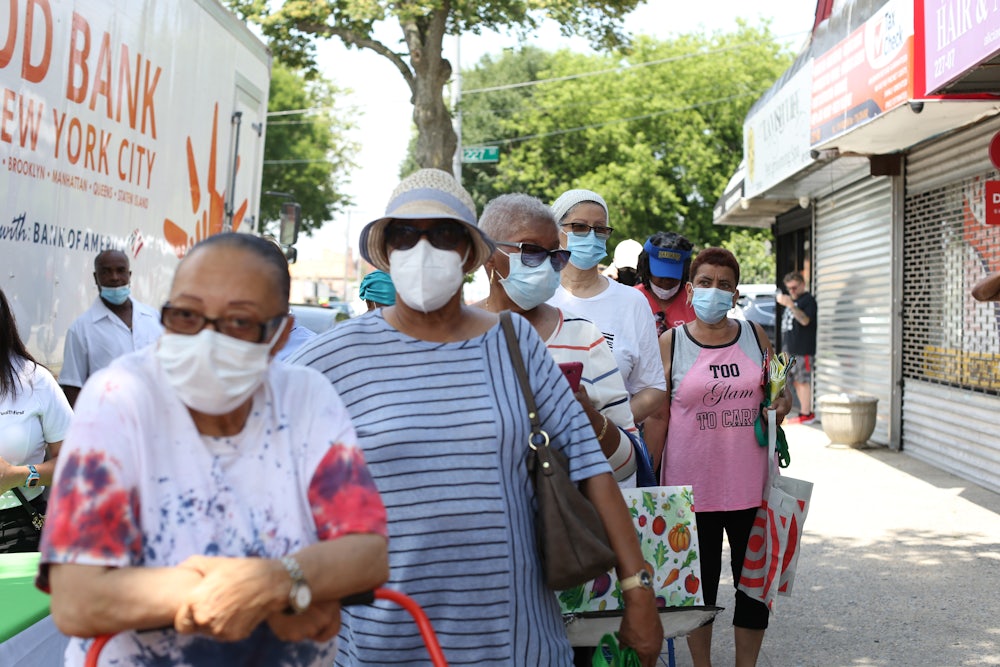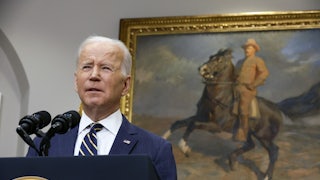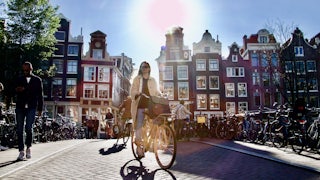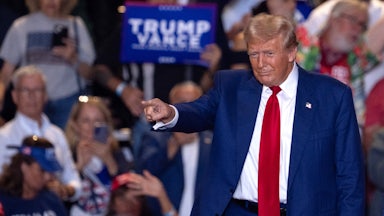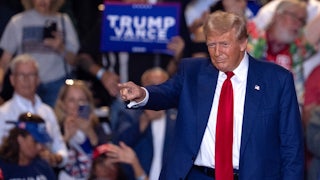I had the misfortune of publishing my first book in March 2020—right into the teeth of the worst pandemic in modern history. The 40-stop book tour I had planned was supplanted by a few glitchy and disjointed Zoom events before the quantum leap in teleconferencing began.
But the irony of this was not lost on me. My book was about how we are building on unstable foundations. Healing Politics made the case that we were experiencing an “epidemic of insecurity”; that so much of the American experience was characterized by the fraying of the fundamental structures we needed to build stable, dignified lives—leaving us in “fear for our or loved ones’ futures.”
I described how our health care, education, financial, infrastructure, and civic systems are crumbling at the hands of major corporations to whom our government has bartered off the responsibility for providing critical public goods. You may be insured—but what about that deductible that’s bigger than your monthly paycheck? That’s insecurity built into our corporate, profit-driven health care system. What about our democracy? Our public conversation is intermediated by tech giants who promote the most inflammatory content to monetize our eyeballs. That’s led to insecurity in our politics.
And that book came out before the proverbial shit hit the fan in America. Today, Americans are contending with even more fundamental challenges, including the ongoing pandemic, rising inflation, and the specter of broadening war in Europe. As policymakers contend with these challenges, it is worth recognizing that solving them isn’t enough—they have to quell the insecurity these factors introduce into people’s lives.
Consider the pandemic. There were the first three months, in which millions lost their jobs, while millions more had to choose between their lives and livelihoods. Along with their jobs, nearly 15 million people lost their health insurance—in the middle of a pandemic. Since, the federated and disjointed nature of our public health system, politicization of the pandemic, and poor science literacy have led to mixed and garbled public health messaging that has often obscured efforts to decipher what’s safe. “Mask or no mask” has been the least popular parlor game of the pandemic. Beyond knowledge, Americans have simply lacked access to the means of safety. When the omicron surge took hold in the fall of 2021, Americans had to wait for hours for Covid tests that people could access in other countries for pennies on the dollar. Yet Congress continues to play games with funding for tests, vaccines, and Covid treatments even as a possible resurgence of the new omicron variant looms.
And then there’s the matter of schools. Open or closed? Masked or unmasked? Regardless of where you fall, the insecurity imposed on families trying to work—and teach—from home has driven schools back to the top of the list of live political controversies.
Meanwhile, inflation is eating paychecks as corporations race to raise their profits under its guise. Oligopoly, as much as any other pandemic-imposed economic phenomenon, has left Americans, yet again, worried about the future. Meanwhile, the Biden administration points to job and gross domestic product growth and other economic metrics to tout the “Biden Boom.” But they’re missing the different ways that these metrics show up in our expectations for the future. Job growth is hard to experience as an individual—you and others you know either have jobs or you don’t. But inflation? Inflation is something you feel every time you pump gas, check out at the grocery store, or go to a movie. It’s uniquely poised to inflict insecurity.
And then there’s our politics. Beyond the risk of expanding war in Europe, there’s the question of our democracy here at home. Donald Trump—the presumptive Republican nominee for president in 2024—aided and abetted a violent insurrection against our democracy the last time he ran. State after Republican-held state has raced to pass voter-suppression laws under the guise of “election security,” setting up a solution to a nonexistent problem as the trap for an even more grievous attack on our democracy next time.
And who do these suppression bills target most of all? Black folks, who have long borne the brunt of all our country’s insecurities. We watched the deadly consequences of that on a street in Minneapolis, when a white policeman knelt on George Floyd’s neck for nine minutes and 29 seconds; in an apartment in Louisville, Kentucky, into which police fired indiscriminately, killing Breonna Taylor; and in a neighborhood in Georgia when armed vigilantes killed Ahmaud Arbery. But these are just the tip of an iceberg. Policing in America exposes Black folks to the insecurity of being murdered by an arm of the state sworn to “protect and serve.” But Black Americans also suffer America’s financial, health care, educational, and civic insecurities in ways that compound: From the probability of losing a home to being forced to work shifts you’re only told about hours before, to the chances of being exposed to lead, Black Americans suffer worst of all.
Politicians and policymakers have an instinct to compartmentalize—each problem in its own bucket. But that’s just not how everyday folks experience the world. Rather, it all melds together in a general sense of “how things are going.” Insecurity offers a unifying frame for how each of our ongoing crises—the pandemic, inflation, the war, schools, racial injustice—compound on one another in people’s lives. Because as bad as the epidemic of insecurity was in March 2020, we are living through an epoch of insecurity today. Policymakers would do well to heed it.
